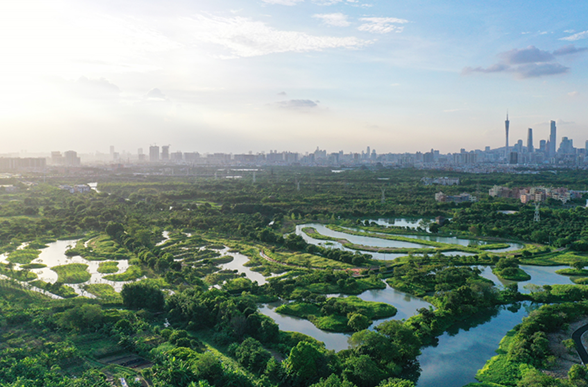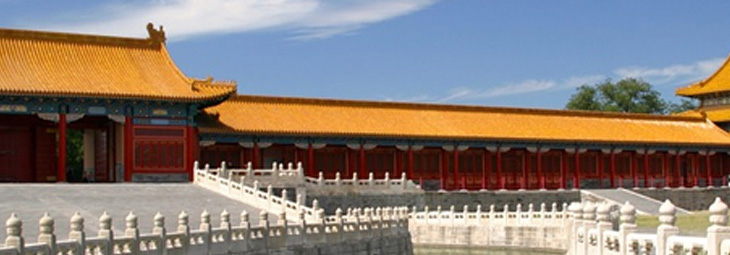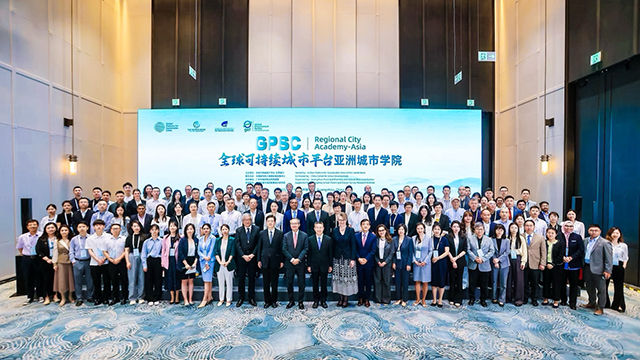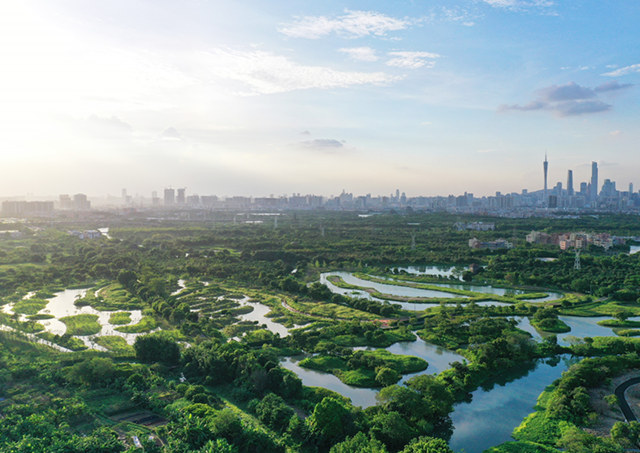


From May 12 to 14, the “GPSC Regional City Academy in Asia” was launched in Guangzhou. Co-hosted by the Global Platform for Sustainable Cities (GPSC) of the World Bank and the China Center for Urban Development, and co-organized by the Guangzhou Municipal Planning and Natural Resources Bureau with support from the Guangzhou Urban Planning & Design Survey Research Institute, the event is one of the flagship initiatives of the GPSC. It brought together representatives from the World Bank, cities from China and abroad, financial institutions, academic organizations, and leading media. The Academy focused on the unique development needs of Asian cities, with discussions centered on urban spatial planning and development strategies to enhance resilience, promote job creation, and advance sustainable urban financing. Through keynote speeches, case studies, urban practice exhibitions, and interactive sessions, the Academy explored pathways toward resilient, low-carbon, and sustainable urban transformation.
The GPSC led by the World Bank, is dedicated to providing technical support, innovative tools, and collaborative opportunities to help cities address the complex challenges posed by rapid urbanization and climate change. As one of GPSC’s core and regular programs, the Regional Urban Academy adopts a modular training approach aimed at strengthening the capacities of urban decision-makers and practitioners, thereby promoting sustainable urban development.

The opening ceremony of GPSC Regional City Academy in Asia
Source:Global Platform for Sustainable Cities
The Academy focused on two key themes:(1) Blueprint for Tomorrow – Planning for Urban Resilience; (2) Nature in the City – Building Green-Blue Infrastructure to Enhance Urban Resilience
The first theme explored how urban planning can integrate resilience and sustainability into land use and development strategies, with emphasis on strategic land use planning, tools for climate-smart urban development, and cross-sectoral institutional coordination to align urban expansion with climate adaptation and decarbonization goals.
The second theme examined Nature-based Solutions (NbS) as cost-effective approaches to enhance urban resilience, reduce climate risks, and improve livability. Key topics included sponge city principles, green-blue infrastructure for urban cooling, green corridors for biodiversity, and enabling policies and financing mechanisms to integrate NbS into urban investments.
Guangzhou is one of China’s leading megacities, and its innovative practices in developing green-blue infrastructure, as well as implementing sponge city initiatives, have provided concrete solutions for sustainable urban development. As the host city, Guangzhou has thoroughly implemented China’s ecological development philosophy, leveraging its abundant natural resources to actively advance the transition toward green and low-carbon development. The city is also exploring new pathways for spatial governance in megacities, offering valuable references for sustainable urban development globally. In recent years, Guangzhou has continuously innovated around global priorities such as green, low-carbon, and resilient development. A number of its planning initiatives have gained international recognition through platforms like the Global Platform for Urban Nature Program “Lighthouse Cities” network, showcasing the wisdom and experience of Guangzhou.

Haizhu Wetland Landscape
Source: Guangzhou Municipal Planning and Natural Resources Bureau
Source: Guangzhou Municipal Planning and Natural Resources Bureau
Editor & Translator:Li Chun